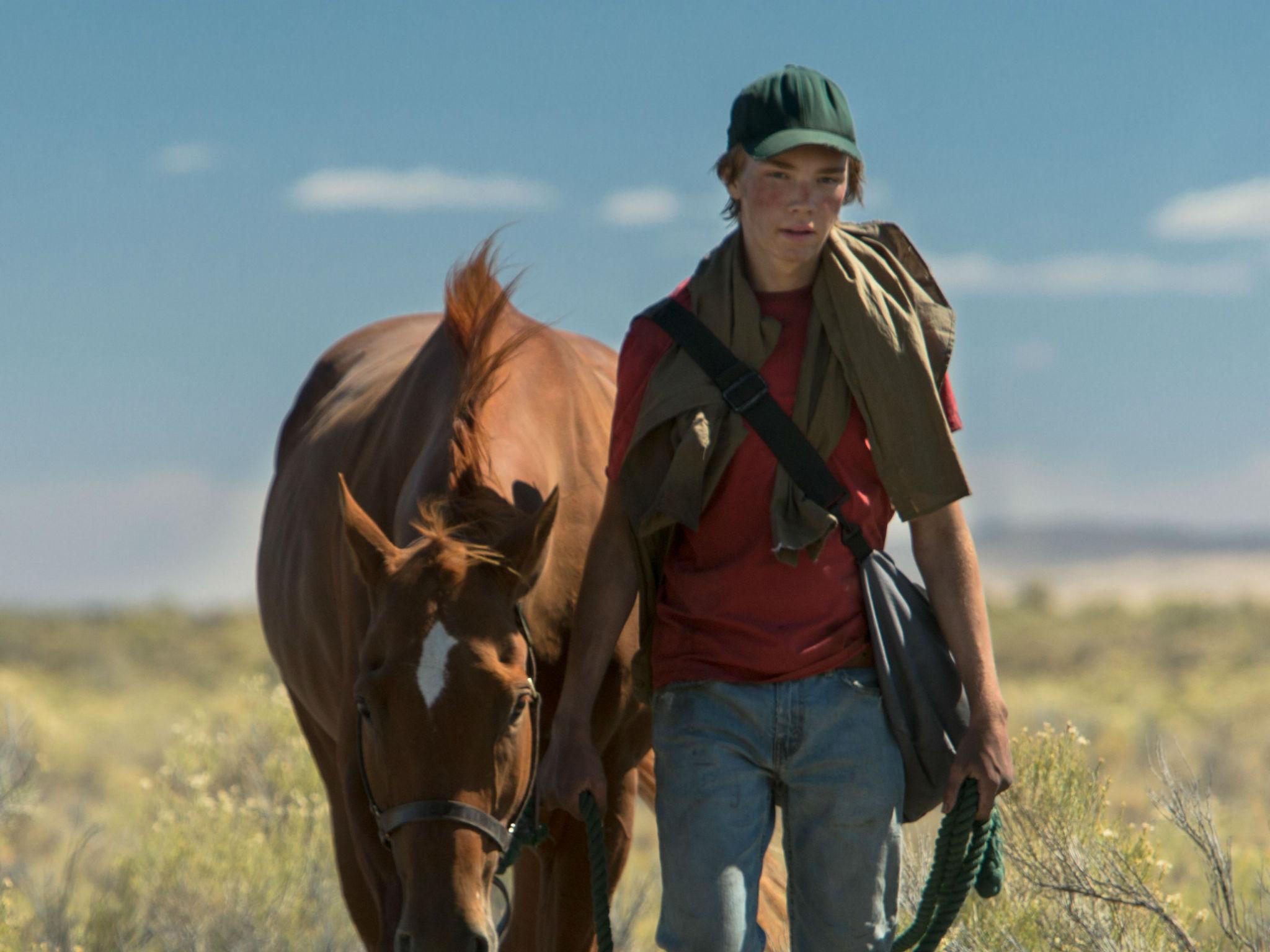Lean On Pete film review: Soft-centred road movie boasting standout performance from Charlie Plummer
Dir. Andrew Haigh, 122 mins, starring: Charlie Plummer, Travis Fimmel, Chloë Sevigny, Steve Buscemi, Steve Zahn, Amy Seimetz

Writer-director Andrew Haigh follows up on the exceptional 45 Years, about a British couple who’ve been married for half a century, with a new film whose main character is a teenage American boy from a broken family. Lean On Pete may be very different in setting and subject matter from its predecessor but it has exactly the same quiet intensity. It also boasts standout performances from Charlie Plummer as the wayward and sensitive young hero and from Steve Buscemi as Del, the gruff racehorse trainer who becomes an unlikely father figure to the boy.
At times, the movie (adapted from Willy Vlautin’s novel) labours under the weight of its own references. There are echoes here of everything from Charles Bukowski’s stories about gambling and drinking at the race tracks to Wim Wenders’ Paris, Texas. SE Hinton’s novels, Carroll Ballard’s The Black Stallion and even some of Arthur Miller’s plays also appear to be inspirations. In the second half of the film, the improbabilities mount and sentimentality creeps in. This, though, is still powerful and poignant filmmaking.
Lean On Pete is the name of one of the horses trained by Del (Buscemi), an ornery old-timer who uses every ruse he can to turn a buck. Charley (Plummer) is a teenager living in Portland with his flamboyant but irresponsible father Ray (Travis Fimmel). Charley’s mother left years before. His father has had a succession of girlfriends. He dotes on Charley but lives a precarious existence. He has started a relationship with a woman married (apparently unhappily) to a Samoan. The Samoan turns out to be a jealous and vengeful type.
Charley is a likeable 15-year-old. He’s loyal and hardworking, which is why Del takes him on as an assistant. Charley turns out to be a natural with the horses. He identifies especially closely with Lean On Pete, a horse in which Del has little faith. As soon as Pete stops winning, Del plans to send him south to Mexico. Charley quickly discovers that the horse is almost certain to be slaughtered if this happens.
The scenes between Buscemi and Plummer provide many of the film’s best moments. Buscemi’s character is pragmatic and sometimes cruel. He has a vicious turn of phrase. Nonetheless, something in the boy’s character appeals to his better instincts. Chloë Sevigny also makes a strong impression as Bonnie, Del’s jockey. She is not yet as cynical as Del but she is not as naive as Charley either.
The three of them turn into a makeshift family, travelling between race meetings, trying to make money and to get away before Del’s shifty opportunism gets them into trouble.
As countless other films have shown, horses are very photogenic. Lean On Pete has its share of dramatic race sequences and shots of Lean On Pete looking suitably majestic as he gallops across the dirt.
Mid-way through, the storytelling style changes. The film suddenly turns into a road movie. The boy and the horse travel cross country together to an uncertain destination somewhere in Wyoming. The boy has no money and seemingly no-one to help him. He experiences extreme poverty and hardship. Plummer, who also starred as the kidnapped young Getty whose ear is cut off in All The Money In The World, has a soulfulness on camera which belies his young age. Here. he is always conscious that if he tells his true story, the authorities will take him into care. He clings desperately to his freedom. Charley is proud, too. He doesn’t want old acquaintances from his high school days, when he was a star footballer, to see the desperate straits into which he is falling.
The boy is not above lying or stealing food and petrol but director Haigh portrays him as if he is a delinquent cowboy version of Charles Dickens’ Oliver Twist. Whatever squalor, violence or misfortune he encounters, he never loses his idealism or his decency. Haigh fills the film with familiar but still very evocative imagers of the American West. We see the desert; the long, open road and the ranch where Charley briefly stays with a couple of Iraq War veterans as hosts.

Watch Apple TV+ free for 7 days
New subscribers only. £8.99/mo. after free trial. Plan auto-renews until cancelled

Watch Apple TV+ free for 7 days
New subscribers only. £8.99/mo. after free trial. Plan auto-renews until cancelled
It’s in the cities that Charley is most vulnerable, living on the streets among the junkies and the homeless. Some people treat him with kindness, others with cruelty.
Buscemi and Sevigny appear only in the first half of the film. They both play such vivid characters that the film loses some of its spark in their absence. Parts of Charley’s epic journey strain credibility. You wonder just how he manages to survive. We are not sure whether we are watching a realist drama about a kid experiencing poverty and hardship or an escapist fantasy in which the young hero is on a fantastical journey. Some moments here are very tough but others are surprisingly soft-centred. Whatever the situation, we can’t help but root for a character as likeable and resilient as Plummer’s Charley.
Subscribe to Independent Premium to bookmark this article
Want to bookmark your favourite articles and stories to read or reference later? Start your Independent Premium subscription today.

Join our commenting forum
Join thought-provoking conversations, follow other Independent readers and see their replies
Comments